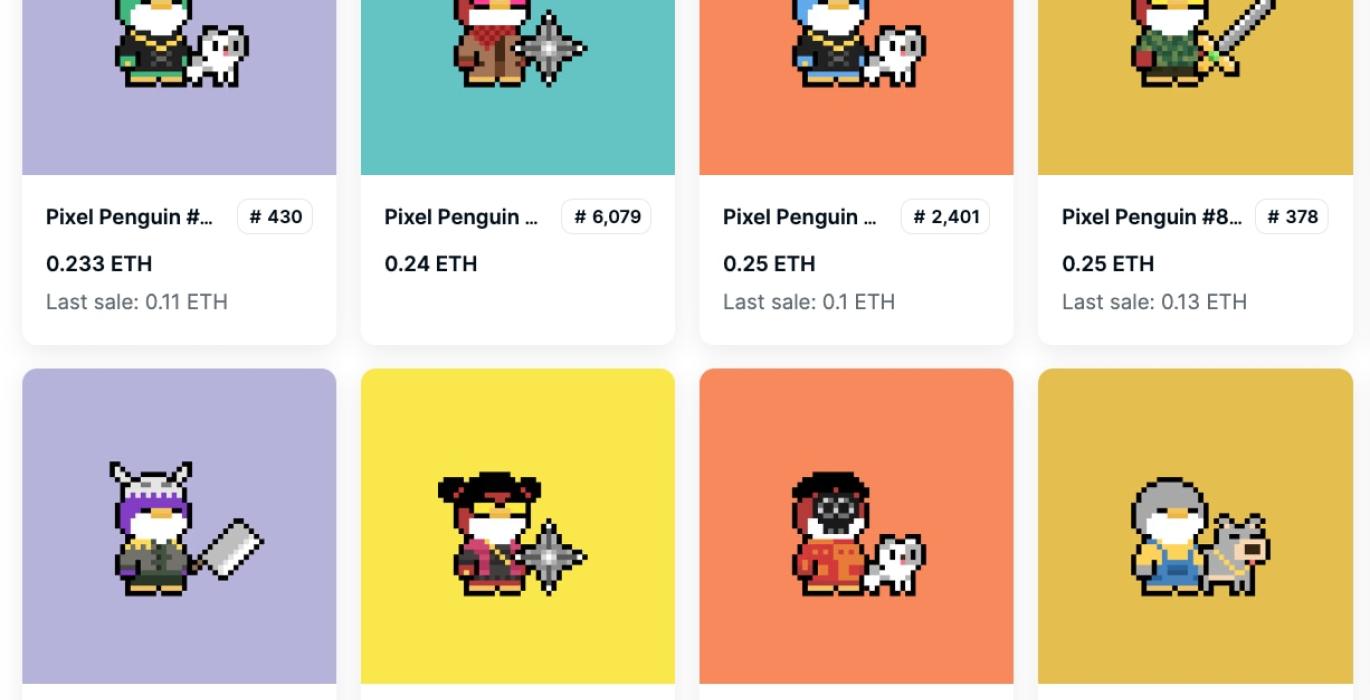A popular NFT project, Pixel Penguins, allegedly created by an artist battling eye cancer, has been exposed as a fraudulent scheme using stolen art. The unidentified fraudster made over $100,000 from the scheme and immediately deactivated their Twitter account.
A new low for the NFT space?
The scam artist, who went by the handle Hopeexist1, gained popularity on May 30 when crypto influencer Andrew Wang shared a Twitter thread detailing her purported struggle with eye cancer and her artistic endeavors in the digital community. Wang, in his tweets, rallied his community to support Hopeexist1, arguing for the recognition and support of such artists in the web3 space.
His plea to the crypto community wasn’t in vain, as Wang stated:
“I hear a lot about how web3 isn’t what it used to be, and I’m often guilty of being a complainer more than anything. Truth is web3 is what we want it to be, and for one, the artists here haven’t stopped creating. We don’t have to choose them but we can’t pretend they don’t exist.”
The tweets sparked a wave of sympathy, catapulting Pixel Penguins to popularity within the broader community. Donations started flooding in, accelerating the collection’s sales and trending status on OpenSea, a renowned NFT marketplace.
Feeling betrayed
However, the community’s goodwill was swiftly betrayed. Upon further scrutiny, it was revealed that not only was the artist’s claim of battling cancer fraudulent, but the art associated with the Pixel Penguins NFTs was stolen.
ZachXBT, a blockchain investigator, shed more light on the scam in a Twitter thread posted on May 31. He reported that the Pixel Penguin contract contained 61.686 ETH, which was valued at over $117,000. Additionally, the scammer had moved a sum of 63.5 ETH made from the scam to two new addresses at the OKX crypto exchange.
Following these revelations, the scam artist deactivated her Twitter account. As a result, the collection’s floor price plummeted by 86% to 0.004 ETH from its peak of 0.075 ETH on OpenSea. Pixel Penguins, according to OpenSea data, had recorded 6,582 sales and its volume was 216 ETH.
In the aftermath of this scandal, Andrew Wang apologized for promoting the collection, admitting he genuinely believed in its authenticity. This incident serves as a stark reminder of the potential for exploitation in the increasingly popular NFT market and reinforces the need for increased vigilance and scrutiny within the community.
Source: nft.news

This information is published by the NFT News media team.











